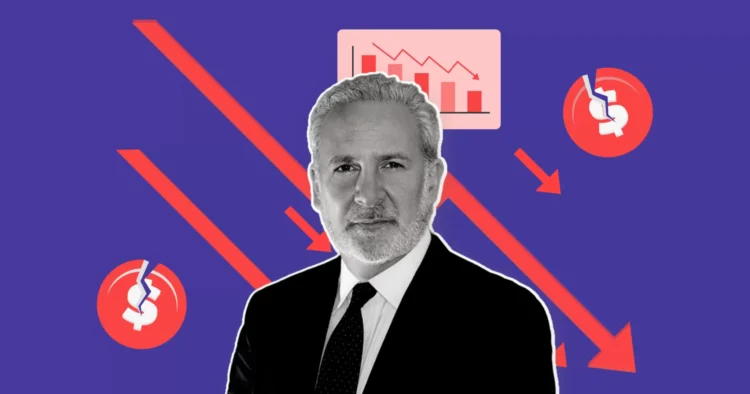Peter Schiff, a well-known critic of Bitcoin, recently took to social media to express his concerns about the idea of incorporating Bitcoin into the U.S. strategic reserve. Schiff argues that this proposition could be fraught with challenges, primarily due to Bitcoin’s notorious volatility and its potential repercussions on market stability.
Schiff Opposes U.S. Holding Bitcoin
The debate was ignited following comments by Tom Lee from Fundstrat during an appearance on CNBC’s Squawk Box. Lee proposed that Bitcoin might be a viable solution to address the U.S. budget deficit. He suggested that, despite the inefficacy of tax cuts and spending alterations, Bitcoin could act as a financial hedge. Lee highlighted that as Bitcoin’s value increases, it might offset liabilities tied to the national deficit.
Schiff’s Social Media Response
Peter Schiff criticized this notion on X, previously known as Twitter, stating that many CNBC anchors appear to be promoting Bitcoin. In his opinion, the suggestion that the U.S. government should purchase Bitcoin to elevate its price, thereby creating a valuable reserve asset to counteract the $36 trillion national debt, was misguided.
Schiff contends that adding Bitcoin to the reserve asset list might seem appealing due to its appreciation potential. However, he emphasizes the liquidity risks involved. He warns that if the U.S. government were to hold significant Bitcoin reserves, any attempt to liquidate these holdings could trigger a market collapse, rendering the reserves ineffective.
Criticism of the Plan
Schiff did not mince words, calling the plan “ridiculous.” He argued that even if one believes in Bitcoin’s potential, a large Bitcoin reserve would be ineffective as a strategic asset. The government, he noted, could not sell these assets without causing a market crash. This scenario would undermine the purpose of having a strategic reserve intended to bolster fiscal resilience.
Schiff’s stance is that Bitcoin’s inherent volatility and lack of liquidity make it unsuitable as a serious reserve asset. He cautions against what he perceives as unwarranted optimism regarding governments’ utilization of Bitcoin.
Further Concerns and Political Views
Beyond the Bitcoin debate, Schiff has also expressed his disapproval of political outcomes, particularly regarding Trump’s election victory. In subsequent posts, he shared his skepticism about the surge in consumer optimism, which he attributes to what he calls “misplaced confidence in a Trump-inspired economic boom.”
He warned that while consumer optimism might continue to rise temporarily, it is based on unrealistic expectations. Schiff believes that the economic challenges people hoped Trump would resolve will worsen over time, undermining the initial optimism.











